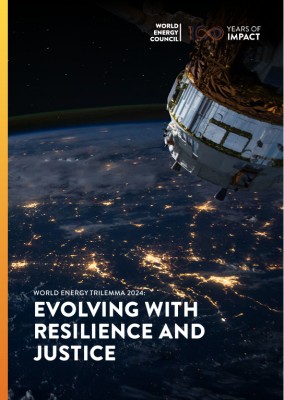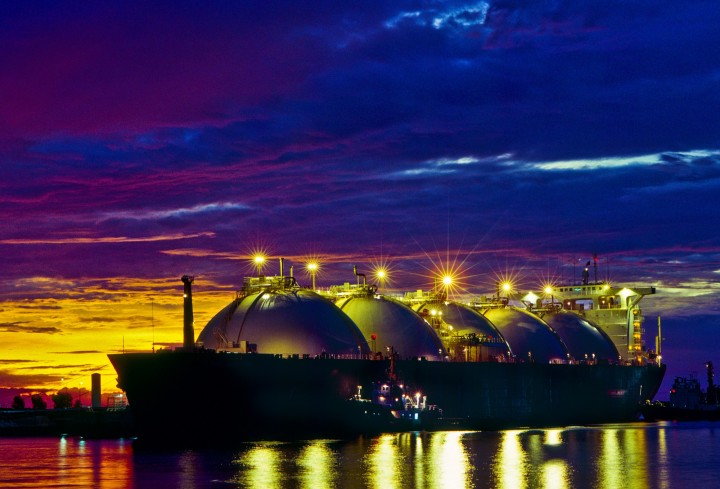The Saudi Arabia National Committee aims to promote sustainable energy development in Saudi Arabia, as a part of the World Energy Council’s energy vision. As a member of the World Energy Council network, the organisation is committed to representing the Saudi perspective within national, regional and global energy debates. The committee includes a variety of members to ensure that the diverse energy interests of Saudi Arabia are appropriately represented. Members of the committee are invited to attend high-level events, participate in energy-focused study groups, contribute to technical research and be a part of the global energy dialogue.
His Royal Highness Prince Abdulaziz was appointed Minister of Energy in September 2019. In his capacity as Minister of Energy of Saudi Arabia, Prince Abdulaziz is responsible for coordinating the Kingdom’s domestic and international energy policies in line with the goals of Vision 2030. This includes overseeing energy activities within the Kingdom; regulating the oil, gas, electricity, nuclear and renewables sectors in the interests of the Kingdom in the short and long term and directing Saudi international policy with regard to relations with producers (including through OPEC and OPEC+) and with consumers. He has been an active participant in shaping energy policy, both nationally and internationally for more than thirty years and he is the chairman of many energy related organizations.
Prior to his appointment as the Minister of Energy, Prince Abdulaziz served in numerous capacities in the Ministry over the past three decades, including as Minister of State for Energy Affairs, Vice Minister of Petroleum and Mineral Resources, Assistant Minister of Petroleum and Mineral Resources, Deputy Minister for Petroleum Affairs and Adviser to the Minister of Petroleum and Mineral Resources.
HRH holds a Master’s Degree in Business Administration (MBA) (1985) and a Bachelor's Degree in Industrial Management (1982), both from King Fahd University of Petroleum and Minerals. After graduation, he served from 1985-87 as Director of the Economic and Industrial Research Division of the Research Institute at King Fahd University of Petroleum
Email: Yasir.Turki@moenergy.gov.sa
Energy in Saudi Arabia
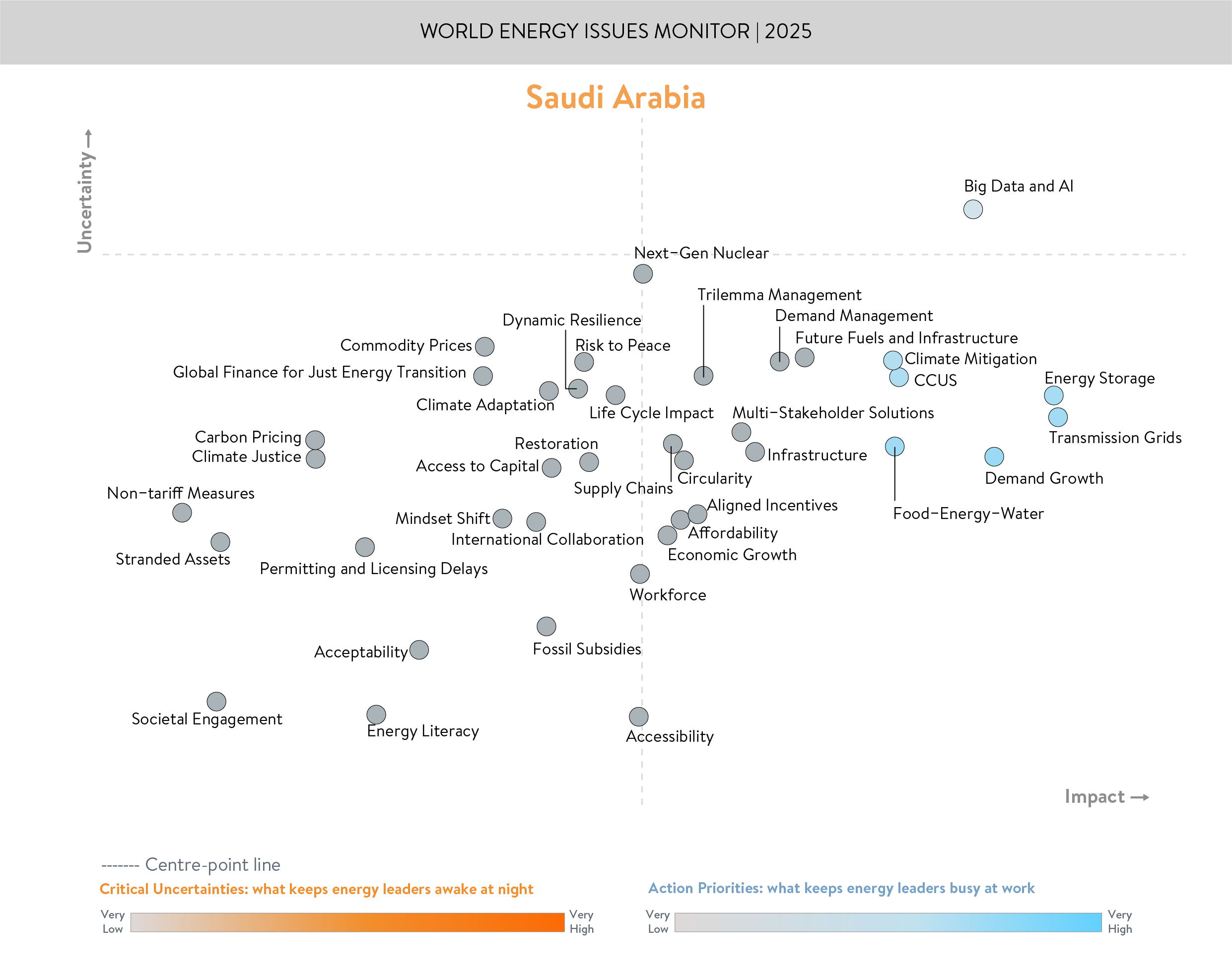
ENERGY ISSUES IN MOTION
The Kingdom of Saudi Arabia (KSA) is embarking on a transformative journey, strategically diversifying, upgrading and improving its energy landscape to align with the ambitious goals of Vision 2030. Those transitions extend beyond a mere diversification of energy sources; it signifies a fundamental shift in the Kingdom's approach to energy, emphasizing sustainability, innovation, and economic diversification. Historically, the Kingdom relied on its vast hydrocarbon reserves. Today, Saudi Arabia is proactively investing in an integrated energy strategy, encompassing renewable energy, advanced gas infrastructure, and the exploration of nuclear power, evident in the ongoing plan for the first nuclear power station in Saudi Arabia along with eye on the evolution of SMRs and innovative reactor developments. This investment is happening in line with heavy investments in its traditional Oil & Gas resources. The Kingdom's commitment to renewable energy is evident in its ambitious targets, aiming for 100-130 GW of renewable capacity by 2030, a testament to its dedication to reducing its carbon footprint and enhancing energy security, sustainability and equity. This endeavor is supported by a balanced, data-driven approach, involving extensive regional mapping and analysis, which has resulted in achieving remarkably low low-level energy costs. In the previous World Energy Issues Monitor iteration, the Kingdom was working on predetermined the optimal energy mix. As it works to achieve its targets, energy storage is becoming a top Action Priority and focus area in 2025. The Kingdom has an ambitious target of developing 48 GWh of Battery Energy Storage Systems (BESS) by 2030, toward enhancing energy resilience, improving grid stability, and supporting large renewable energy integration. As a step forward toward that goal, the Kingdom has marked a remarkable achievement of operating the largest single energy storage project of 2000 MWh, in addition to advancing advancing the development of several energy storage projects of 30 GWh that have already been tendered or under construction.
The Kingdom has repeatedly broken record-low costs in Levelized Cost of Electricity (LCOE) in both Solar and Wind Projects at 1.04 cents/kWh for solar and 1.57 cents/kWh for wind projects. Simultaneously, Saudi Arabia is strengthening its natural gas infrastructure through the expansion of the Master Gas System to address the growing demand, a critical component of its strategy to meet the growing domestic demand and support broader industrial diversification. This expansion, slated to increase supply capacity significantly by 2028, will extend the reach of natural gas to additional industrial cities, fostering economic growth and reducing reliance on liquid fuels. Furthermore, the Kingdom is exploring the potential of nuclear energy as a strategic option, with the Saudi Nuclear Energy Program aiming to introduce substantial nuclear power capacity and investigate the applications of small modular reactors. This diversification underscores Saudi Arabia's commitment to a balanced energy mix, ensuring reliability and resilience in the face of evolving energy demands.
As observed in the World Energy Issues Monitor Action Priorities, the Saudi energy ecosystem recognized the strategic advantages of its concentrated industrial base and infrastructure in Jubail and Yanbu; hence, the Kingdom is planning global carbon capture, utilization, and storage (CCUS) projects. These two cities are key centers for petrochemicals, steel, and other heavy industries, which could offer substantial economies of scale for mitigating GHG emissions through the Circular Carbon Economy (CCE) approach by reducing, reusing, recycling, and removing. Moreover, the carbon captured in these projects will be vital for producing clean hydrogen derivatives. The Kingdom's current CCUS capacity is 1.3 million tons annually, and it is significantly expanding this with major projects in Jubail (a CCS hub targeting 9 million tons/year by 2027 and 44 million tons/year by 2035) and Yanbu (a CCU hub aiming for 1.5 million tons/year by 2030).The modernization of the power sector infrastructure is another crucial aspect of the Kingdom's energy transition. Investments in advanced gas generation facilities, equipped with carbon capture readiness, and the development of a smart, flexible grid are essential for integrating diverse energy sources and ensuring efficient distribution. This infrastructure upgrade is designed to connect renewable energy sites and conventional power plants to load centers across the Kingdom, overcoming geographical challenges and ensuring a stable power supply. Moreover, Saudi Arabia is actively promoting energy efficiency and sustainability through initiatives led by the Saudi Energy Efficiency Center (SEEC). These initiatives have resulted in significant reductions in energy consumption intensity, demonstrating the Kingdom's commitment to responsible energy use.
Saudi Arabia's engagement in international collaboration is also crucial, fostering partnerships and promoting a balanced global energy landscape to tackle global energy issues such as market stability. Initiatives like the Clean Energy Ministerial and other collaborations within OPEC+ demonstrate the Kingdom's commitment to regional and global energy markets stability and sustainability for both producers and consumers.
FROM BLIND SPOTS TO BRIGHT SPOTS
Saudi Arabia’s ambitions to lead in AI and data centers are highlighted in the Saudi Data and Artificial Intelligence Authority strategy. Saudi Arabia aims to solidify its position as a global hub for Data & AI. This ambition is supported by a comprehensive strategy focusing on six key objectives: cultivating a skilled workforce by transforming KSA's talent pool and producing over 20,000 data and AI specialists; enacting progressive legislation to create a welcoming environment for Data & AI businesses and talents, targeting a top 10 ranking in open data; attracting significant and stable funding, aiming for approximately 75 billion SAR in data and AI investments; empowering leading Data & AI institutions to drive research and innovation, with a goal of ranking among the top 20 countries in scientific contribution; and fostering a collaborative and forward-thinking ecosystem that stimulates Data & AI adoption and enriches entrepreneurship by creating more than 300 startups. Moreover, the energy sector was a priority sector in this national level strategy; to help the sector integrate data & AI to optimize capacity, improve efficiency, and drive growth in developing industries. As a result of this planned strategy, the Kingdom secured $14.9B in investment during LEAP 2025. These investments encompass over $10.9 billion allocated to infrastructure, AI, and initiatives from global companies such as Oracle, Google, Alibaba, Tencent, Amazon AWS, and Microsoft. The increase in AI demand creates additional demand on the power grid, and Saudi Arabia has been working closely with interested investors to properly plan future power capacities.
The demand for data centers is embedded within the Kingdom’s overall demand and part of the optimized energy mix, power is essential for the success of data center strategies strategies and growth, at the same time the power tariff within the Kingdom is very competitive compared to global market. To proactively balance these challenges, Saudi Arabia is prioritizing actions in energy storage, transmission grid modernization, and demand growth management. The demand for data centers is embedded within the Kingdom’s overall demand and part of the optimized energy mix, the power is essential for the success of data center strategies (all types) strategies and growth.. In 2021, KSA established a specific electricity tariff of 0.18 SAR/kWh for cloud computing, a move intended to foster the growth of data centers as the tariff would be fixed for 7 years. This initiative, coupled with ongoing upgrades to the national transmission grid to accommodate new energy sources and enhance efficient distribution, underscores KSA's commitment to balance the Energy and Artificial Intelligence nexus. Managing demand growth is also crucial, particularly considering economic diversification, population growth, and the development of new demand centers such as AI and data centers. Furthermore, ensuring supply chain resilience is paramount to the Kingdom’s energy transition, encompassing both traditional hydrocarbons and critical minerals vital for renewable technologies.
Recognizing a critical global gap in youth engagement in the energy world as a potential blind spot, Saudi Arabia's energy strategies and initiatives places empowerment of its young population and the realization of Vision 2030 at its core. By fostering a collaborative environment for innovation and progress, the Kingdom is ensuring that its energy transition is both sustainable and inclusive. Demonstrating its collaborative approach to tackle global intertwined and complex energy issues, Saudi Arabia is preparing to further exhibit its leadership by hosting the 27th World Energy Congress in Riyadh in 2026, in addition to hosting other international energy conferences and events. Saudi Arabia is strategically positioning itself as a global leader in all types of energy, demonstrating an integrated and forward-looking approach that integrates environmental responsibility, economic diversification, and technological innovation to shape a realistic energy transition for generations to come.
Acknowledgements
Saudi Arabia Member Committee
Downloads
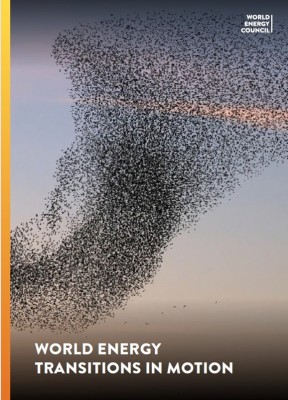
Saudi Arabia Energy Issues Monitor 2025 Country Commentary
Download PDF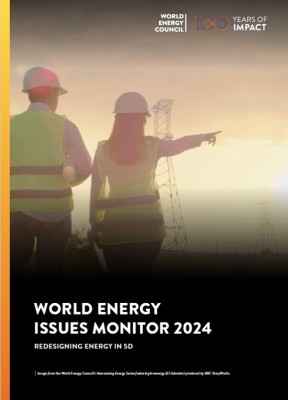
Saudi Arabia Energy Issues Monitor 2024
Download PDF
World Energy Issues Monitor 2024
Download PDF